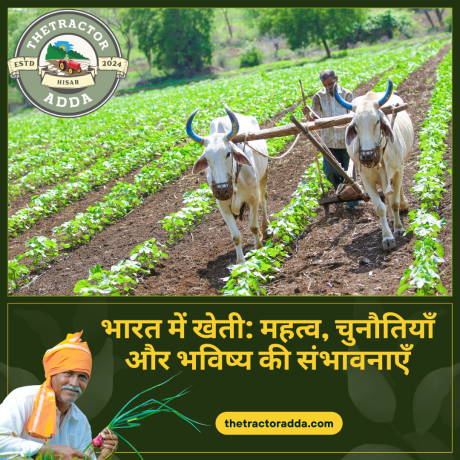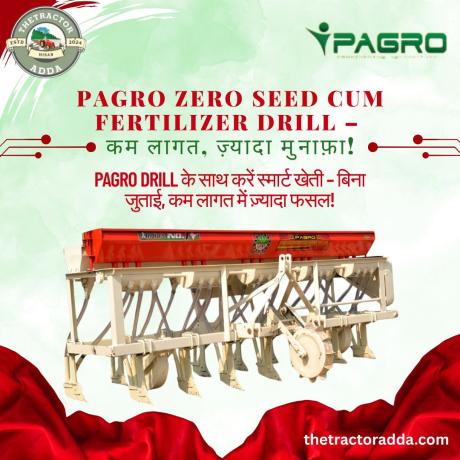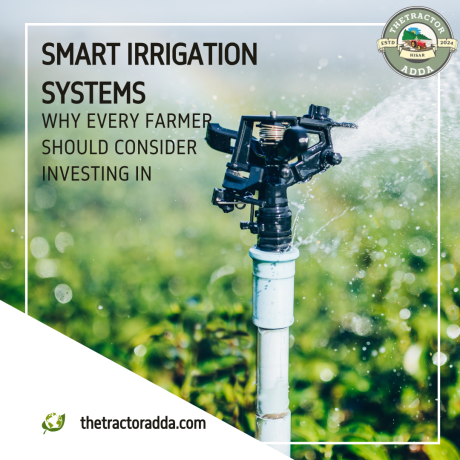Farming in India: Importance, Challenges, and Future Prospects

Blog Description
Farming in India is the backbone of the country's economy, providing livelihood to over 50% of the population. With a vast expanse of fertile land and diverse climatic conditions, India is one of the leading producers of various agricultural products. This blog explores the importance of farming in India, the challenges faced by farmers, and the future prospects of Indian agriculture.
Importance of Farming in India
1. Contribution to GDP
Agriculture contributes significantly to India's Gross Domestic Product (GDP). The sector supports not only farmers but also industries such as food processing, textiles, and export businesses.
2. Employment Generation
The agricultural sector provides employment to millions, especially in rural areas. Farming remains a primary source of income for many households.
3. Food Security
India is a major producer of staples like rice, wheat, pulses, and vegetables, ensuring food security for the nation’s growing population.
4. Export Potential
Indian agricultural products are exported worldwide, generating foreign exchange and strengthening trade relations with various countries.
5. Socio-Economic Development
Farming plays a crucial role in rural development by improving the standard of living, boosting rural infrastructure, and enhancing access to essential services.
Challenges Faced by Indian Farmers
1. Dependence on Monsoon
A large portion of Indian farming relies on monsoon rains, making it vulnerable to droughts and unpredictable weather patterns.
2. Small Land Holdings
Many farmers own small plots of land, which limits productivity and profitability.
3. Lack of Modern Technology
Traditional farming methods are still widely used, leading to lower crop yields and increased labor costs.
4. Financial Constraints
Many farmers struggle with access to credit and financial resources, often leading to debt and economic distress.
5. Market Instability
Fluctuating crop prices and inadequate market infrastructure make it difficult for farmers to get fair prices for their produce.
The Future of Farming in India
1. Adoption of Modern Technology
Precision farming, AI-driven agriculture, and automation can enhance productivity and reduce resource wastage.
2. Organic and Sustainable Farming
The shift towards organic and sustainable farming practices can improve soil health, boost exports, and promote eco-friendly agriculture.
3. Government Support and Policies
Various schemes like PM-KISAN, Soil Health Card, and Minimum Support Price (MSP) ensure financial and policy support for farmers.
4. Irrigation and Water Management
Improved irrigation techniques like drip irrigation and rainwater harvesting can reduce dependence on monsoons and ensure year-round farming.
5. Agri-Business and Agri-Tech Growth
The rise of agribusiness startups and digital marketplaces is revolutionizing the agricultural sector by providing farmers with better market access and real-time data.



